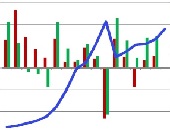Extracting Value from CECL 2
To meet the new for current expected credit losses (CECL) requirements, “you will need a lot of data,” said Thomas Caragher, Senior Product Manager of Financial & Risk Management Solutions at Fiserv, a US provider of financial services technology. Seven to ten years of data is not unreasonable. The payoff to massive data-gathering is that “you will be able to build strategy more effectively if you have information.” But what to do with the reams of data? First, you have to make some sense of it. “Start by correlating the data,” he said. Oil production might be correlated with loan demand […]
Extracting Value from CECL 1
“Turn the pain of compliance into the benefit of strategy,” said Thomas Caragher, Senior Product Manager of Financial & Risk Management Solutions at Fiserv, a US provider of financial services technology. He was speaking about the approaching deadline to implement new guidelines for current expected credit losses (CECL) at a webinar sponsored by the Global Association of Risk Professionals on April 11, 2018. CECL is the new impairment standard for credit impairment under the Financial Accounting Standards Board (FASB). Since it affects accounting, the effect of CECL will be felt “in department stores, cell phone companies, municipalities”—throughout the U.S. The purpose of business intelligence is […]
Avoid Jekyll and Hyde
Accurate price determination for commodities means that data must be gathered, processed and analyzed. What, then, are current best practices for data management? “Organizations are beginning to recognize their current solutions are no longer meeting current needs,” said Michal Peliwo, Vice President of Business Solutions at ZE PowerGroup. He was the third and final speaker at a webinar on August 24, 2016, sponsored by the Global Association of Risk Professionals, titled “The Price is Right? Strategies for Market Discovery & Optimum Pricing Challenges.” Peliwo described the fragmented world of data management as it exists at most companies. “MS Excel is […]
Optimum Price a Moving Target
How was risk-taking originally priced, and has this changed over time? Centuries ago, mercantile economies used to pool risk for the trading ships that were sent out. Over time, this “big chunk risk” has given way to increasingly more precise ways of determining risk, and is now down to individual financial transactions. “Pricing is the centre of gravity of this operation,” said Robin Bloor, Chief Analyst at The Bloor Group. “For every product theoretically there is an optimum price.” Beginning with this historical comparison, he was the first of three speakers at a webinar on August 24, 2016, sponsored by […]
Robo-Advisors
What does the client want to see on the landing page of an automated wealth management website? Four panellists at the digital wealth management (a.k.a. robo-advisor) session of the Financial Technology conference held on June 17, 2016, had theories on how to connect with clients. The session was part of a one-day conference organized by the CFA Society Toronto and was held at the Toronto Board of Trade. Three of the panellists showed screen shots from their companies’ websites and spoke about underlying philosophies on client usage; the fourth panellist works for a company that provides “back end”, namely, the […]
Catch a Falling Knife. Part 1
Who is taking advantage of the downturn in crude oil prices? “Most E&P assets are no longer economic to drill at today’s commodity prices,” said Curtis Flood, Vice President at the investment banking firm Evercore. He was the first of two speakers at a webinar “Catch a Falling Knife: Financial Repercussions of Current Crude Oil Prices” sponsored by the Global Association of Risk Professionals on June 7, 2016. (E&P refers to exploration & production, also known as the upstream petroleum industry.) The downturn in oil & gas prices is “the result of simple economics” caused by the “shale revolution” leading […]
Conference Call Tones. Part 2
Click here to visit Part 1. Interview with S. McKay Price, continued. Q: In the introduction to your paper on textual analysis of conference call tones, you describe a 2012 conference call in which David Einhorn grilled the management team of Herbalife, thereby causing the shares to fall 20 percent in price. Did you run the transcript of this conference call through your call tone algorithm, and if so, was it the most negative sample in the set? 2012 was not in our sample period so we did not specifically create tone measures for that Herbalife call. Although I suppose […]
Conference Call Tones. Part 1
“Spin,” said Morty. “It’s all about spin.” He pointed to the web interface where he was listening to a certain equipment manufacturing company try to explain anomalies in their reported expenses. Like hyenas, the analysts were picking apart the footnotes. Turning to me, Morty said, “These scoundrels are masters of Orwellian doublespeak,” and then he exited the call. About a year later, I chanced upon research that looks into actual word usage during earnings conference calls. Three authors, Paul Brockman, Xu Li, and S. McKay Price, examined transcripts from nearly three thousand such calls. One of the authors is interviewed […]
Most Valuable Skill for Risk Managers?
In terms of marketable expertise for financial risk managers, what counts more: quantitative skills, or the ability to communicate and interpret the results of calculations? “The biggest surprise of our in-depth study is that communication ranked above quant skills,” said Christopher Donohue, Managing Director of Research and Educational Programs at the Global Association of Risk Professionals. On June 30, 2015, he reported on the results of the 2015 Job Task Analysis of GARP members. Survey Design The goal of the survey and analysis was to identify knowledge and skills necessary to support competent performance of tasks and responsibilities that are […]
Hedge Fund Fallacy
“If all the money that’s ever been invested in hedge funds had been put in treasury bills instead, the results would have been twice as good,” said Simon Lack, founder of SL Advisors, LLC, and author of The Hedge Fund Mirage: The Illusion of Big Money and Why It’s Too Good to Be True. This statement was his opening volley in a webinar titled “The Hedge Fund Fallacy” on May 5, 2014, sponsored by the CFA Institute. Lack began with a “typical portrayal” of hedge fund returns: a 6 percent return over the period 1998 to 2013. Over the same […]










